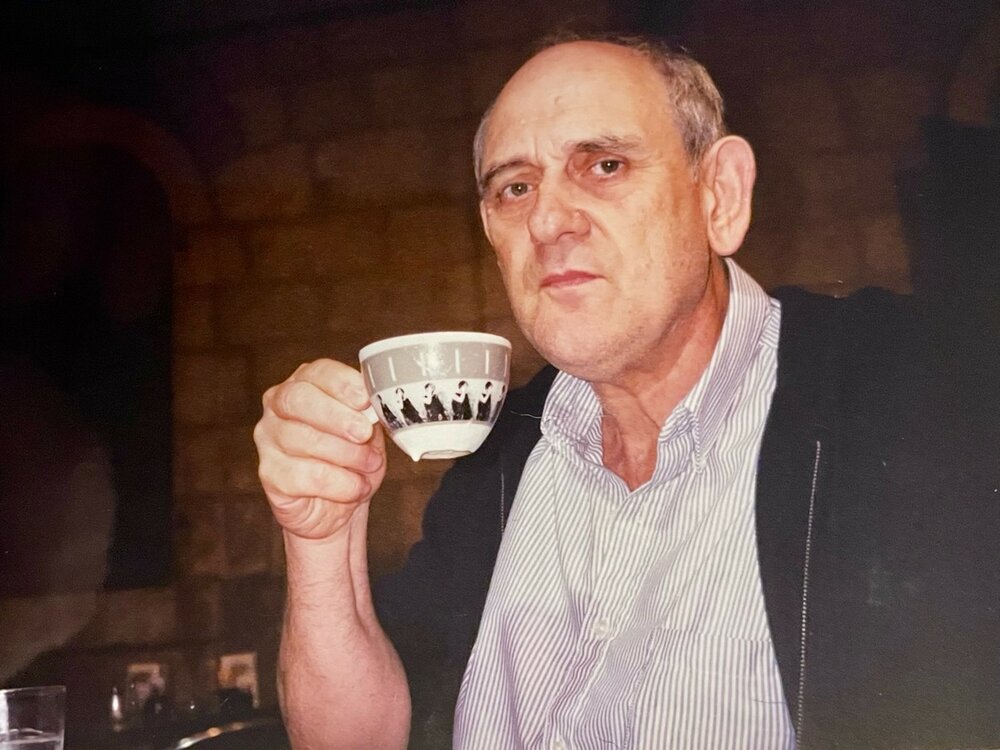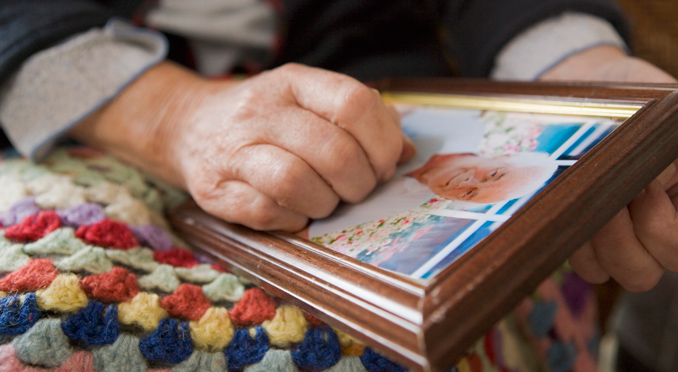
Obituary of Itzhak Epstein
New York, NY
Itzhak Epstein’s remarkable 86-year adventure came to an end on September 17th, 2024. Bonnie, his beloved wife of 52 years and their son Ben were by his side.
Everyone who knew Itzhak will remember him as humble, passionate and dedicated to everything he did. Whether for his family, as an activist for various causes, in his work for New York State on affordable housing, or as an accomplished genealogist, he did it with honesty and idealism. Without self-interest, Itzhak truly spent his adult life working to make the world a better place.
On June 4, 1938, Itzhak was born in Haifa, then part of Mandatory Palestine under British rule. He spent his early years with his loving parents Yehoshua and Masha and his two younger sisters, Bella and Bat Sheva. His childhood was shaped by its consequential setting, beginning in the dark shadow of World War 2, when his grandparents, uncles, aunts and first cousins were all murdered in the Holocaust.
Itzhak’s first memory was being able to turn on the lights at night, once the Nazi bombers were no longer flying over Haifa. When news of how their entire extended family was lost in the Holocaust reached his parents, it greatly affected the atmosphere at home. He also remembered several years later, hiding from Arab snipers, who were positioned at the top of his street during the War of Independence, which ultimately led to the formation of the State of Israel. Maybe because of this, Itzhak always made the best of things and find the best path forward.
When Itzhak was 14, his parents sent him to New York for high school to live with his great-aunt and uncle in the East Bronx. It was a major adjustment in his life, transitioning from secular life in Haifa, where he had spent Saturdays attending soccer games with his father, to living with an orthodox rabbi uncle and aunt who he did not know. His family at home missed him dearly, and he wouldn’t see his mother again until 1967, and his father and sisters in 1970.
Nonetheless, he got to know the Bronx and graduated from Yeshiva University High School, followed by a short stint at Yeshiva University. Itzhak’s sense of individualism and adventure led him to leave his aunt and uncle’s home and chart his own path in the world beyond the Bronx. He moved to the Upper West Side of Manhattan, where he found a job, rented a room and enrolled part time at Hunter College. He joined the Beat Generation, writing poetry, listening to folk music and working in coffee shops.
From there he applied to the University of Pittsburgh, where he put himself through school and earned a BA in Political Science. His first job out of college was teaching Hebrew in Rochester, NY, from where after the Bay of Pigs Invasion, he was drafted into the US Army. Not yet a US Citizen, Itzhak would serve his adoptive country at Fort Knox, KY. There he suffered partial hearing loss on the rifle range, an issue he would deal with for the rest of his life.
With an honorable discharge in hand, PFC Itzhak Epstein moved to Norman, OK to study for a master’s degree in Regional and City Planning. For the rest of his life, Itzhak would extol the virtues of urban living, which for him ideally meant public transit and affordable housing. He wasn’t only pursuing a career; he was following his deeply held beliefs. During his studies in Norman, Itzhak became active in Students for a Democratic Society, with whom he would hitch-hike across the country to take part in meetings and protests.
After earning his master’s degree, Itzhak was hired as an urban planner by the City of Kansas City. Meanwhile as a private citizen, he continued to follow his heart and speak out for civil rights. At a civil rights event held by the Congress for Racial Equality, addressing fair housing practices, a photograph of Itzhak was published in the newspaper that changed his life forever. He was still in his probationary period with his job, so possibly it was no coincidence he was not kept on. After that incident, Itzhak believed that for the next decade he may have been blacklisted from work as an urban planner in the United States.
He returned to New York City and was able to find work as a caseworker for the NYC Welfare Department, helping young mothers in Harlem. At the same time, he was becoming more involved with leftist politics, specifically Jewish oriented groups that explored Jewish and Zionist identity and advocated for peace and justice in both Israel and North America.
Itzhak founded or was involved in the founding of at least five Jewish organizations in the late 1960s and early 70s. These include the Jewish Liberation Project (JLP), the Radical Zionist Alliance (RZA), and Breira, as well as the North American Jewish Students Network (the North American arm of the World Union of Jewish Students) and the Jewish Student Press service.
Radical Zionism was modelled on Black Power and conceived as parallel and in allyship to it. These groups were notably progressive for their time and were among the first of such groups to foster dialogue between Arab and Jewish students in the United States and advocate for a two-state solution. Itzhak’s view of Zionism was that the definition had to begin with understanding the nature of Galut (exile), and not be solely focused on Israel.
In July 1969 Itzhak represented JLP at the United Front Against Fascism conference in Oakland, organized by the Black Panther Party. This was a difficult trip for a Zionist to make, as the Black Panthers were ardent supporters of the Palestinian cause. Itzhak and JLP attempted to make the case for unity. In the spirit of the teachings of Dr. Martin Luther King, Jr. they drew the connection between anti-Semitism and anti-Black racism “as twinned forms of an incipient fascism of the American power structure.” In an open letter to Eldridge Cleaver, Itzhak wrote, “The Star of David and black skin are both the objects of reactionary wrath.” Although he didn’t receive the support from the Panthers he hoped for, he did not waver in his continued fight for equality and unity.
Itzhak found paid work organizing Jewish Students, ultimately for the World Union of Jewish Students. This dovetailed nicely with his interests, and he put his passion into helping organize the North American Jewish Student Network (Network), a group of independent Jewish student groups with an openness to all political views. Itzhak’s goal was for Jewish philanthropies to help foster Jewish life outside of Israel by investing in Jewish activities in North America.
Partially due to his influence, Jewish student groups took over the NY office of the Federation of Jewish Philanthropies in April 1970. This led to negotiations between student groups and the Federation to fund their groups, which helped pave the way for many aspects of Jewish campus life that we know today.
At the same time, Itzhak met the love of his life, Bonnie Chernick, and were married on March 16, 1972, in the Bronx. They honeymooned through Europe on the way to live in Israel, where Itzhak had secured a job as a city planner for the City of Jerusalem. There he served in the IDF as a reserve and saw action in the Yom Kippur war.
Itzhak and Bonnie’s daughter Adina was born in Jerusalem 1974, and son Ben in 1975. Partially because of the reality of land issues in and around Jerusalem, Itzhak became disillusioned with city planning there and on July 4, 1976, he and his family returned to the United States. They ultimately settled back on the Upper West Side of Manhattan, where he would make his home for the rest of his life.
After navigating the economic turmoil of the late 1970s, Itzhak was hired by New York State’s Division of Housing and Community Renewal. There, as the Assistant Director of Research and Analysis and a proud PEF union member his focus was working on rent control laws. This was meaningful work for him, as he always believed that affordable housing was a right.
While raising his family, Itzhak volunteered for many causes. He was an active member and leader at Community Free Democrats, Democratic Socialists of America, the New Jewish Agenda, as well as various political campaigns. He served on the New York County Democratic Committee and was an early member of the Working Families Party.
In June 2008, Itzhak retired from DHCR and turned his focus to enjoying his family and his latest passion, genealogy. He tirelessly worked to trace his family line to the Middle Ages and was proud of many ancestors who he discovered. Among them were many famous rabbis, including the only Jewish King of Poland, Rabbi Saul Wohl, known as the Jewish King for a day. He became particularly interested in the new field of genetic genealogy, for which he was recognized by Family Tree DNA with an award for helping to pioneer the field.
Through his genealogy work he was sought out to consult on multiple projects, including the unauthorized biography of Ralph Lauren, Genuine Authentic: The Real Life of Ralph Lauren. He helped the author Michael Gross decipher the world of the Jewish East Bronx where Lauren, also a Yeshiva High graduate was raised.
Itzhak’s genealogy work was driven by the fact that his family meant everything to him. It helped connect him with the family he never knew, including most of his extended family who were murdered in the Holocaust. His genealogy was a rich legacy of love to leave to his four granddaughters, Annika, Eliana, Claire and Maya, for whom he cared deeply.
Sadly, Itzhak lost his daughter Adina in February 2020 to Multiple Myeloma, the same cancer that would later claim his own life. He is survived by his wife Bonnie, son Ben, sister Bat-Sheva, daughter-in-law Ulrika, grand-daughters Annika, Eliana, Maya and Claire, nephews Gal, Yuval, Arnon, Eitan and Gilad and niece Dafna.
Itzhak always believed in moving forward, and never allowed negative events or situations to keep him down. He was a strong, passionate, insightful, intelligent, kind and generous man who lived by his values, down to his final day. He made the world a better place by passionately fighting for what he believed in, without ever asking what was in it for him.
Funeral services will be held on Sunday, September 22, 2024 at 1:00pm at the Temple Sholom Cemetery, Southwoods Road, Monticello, NY 12701. The service will be live-streamed and can be viewed by clicking here.
Donations can be made to honor his memory and fight Multiple Myeloma through the MMRF @ themmrf.org or the IMF @ myeloma.org.
Arrangements are honorably entrusted to the Joseph N. Garlick Funeral Home - 845-794-7474 or www.josephngarlickfuneralhome.com.
To plant a beautiful memorial tree in memory of Itzhak Epstein, please visit our Tree Store
Graveside Service
Location
Joseph N. Garlick Funeral Home
388 Broadway
Monticello, NY 12701
Phone: (845) 794-7474
Toll-Free: (866) 621-2777
Fax: (845)794-7475




